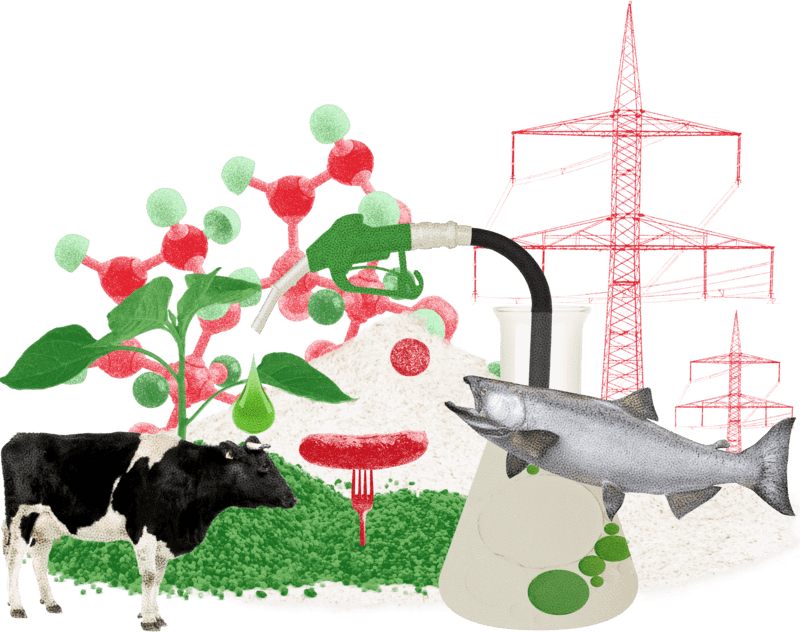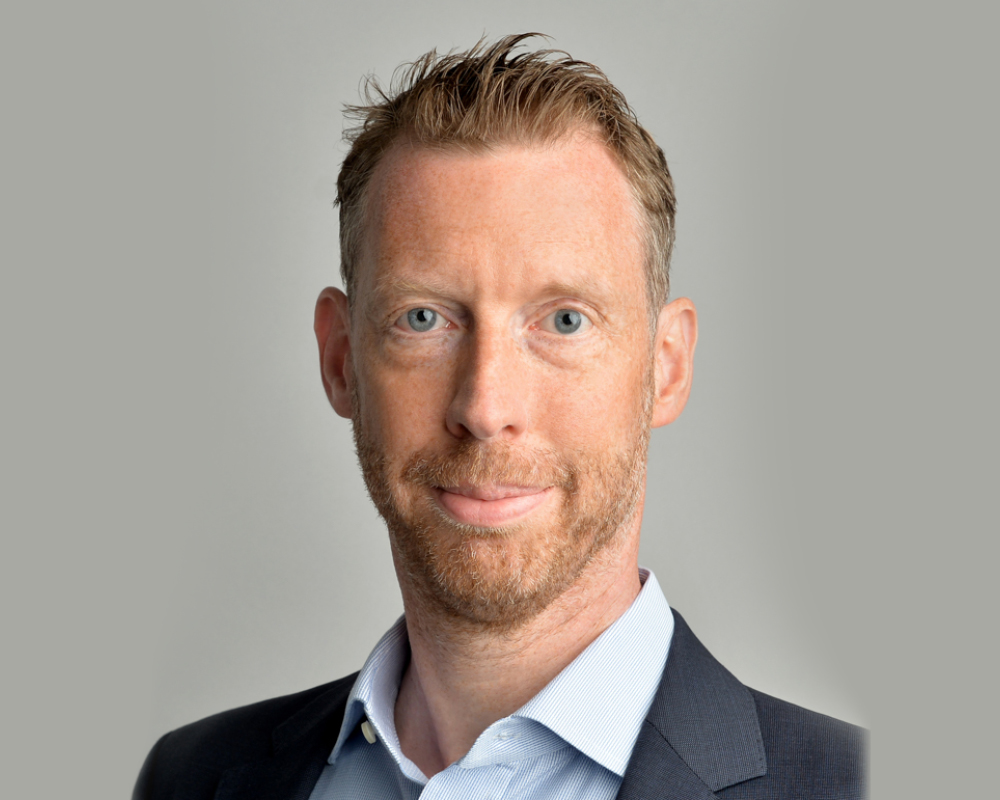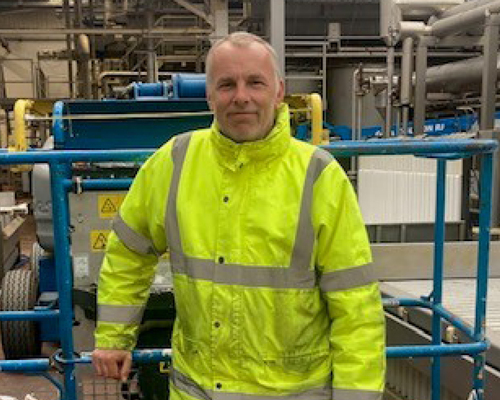People Development and Empowerment
At SARIA, we are convinced that Group-wide cooperation is not only helpful with regard to regulatory and compliance topics. When it comes to managing our people and continuously developing our corporate culture and organization, we see significant potential in boundary-spanning approaches.
To systematically utilize this potential, we created a Group HR function in 2022. It is headed by Claus Eckmann, who previously established and developed the Group HR department at Rhenus, one of our sister companies within the RETHMANN Group. Claus will report directly to the Executive Board and focus on organizational development, employee motivation and the personal and professional recruitment and development of employees and managers. This is how he describes his new role: “I am convinced that HR is primarily a ‘people business’ and that people make the difference between good and very good companies. In my new role as Director Group HR, SARIA is affording me the opportunity to do exactly what excites and drives me every day. I am really looking forward to addressing the various topics together with the decentralized HR managers in the divisions and countries, and creating real added value.”
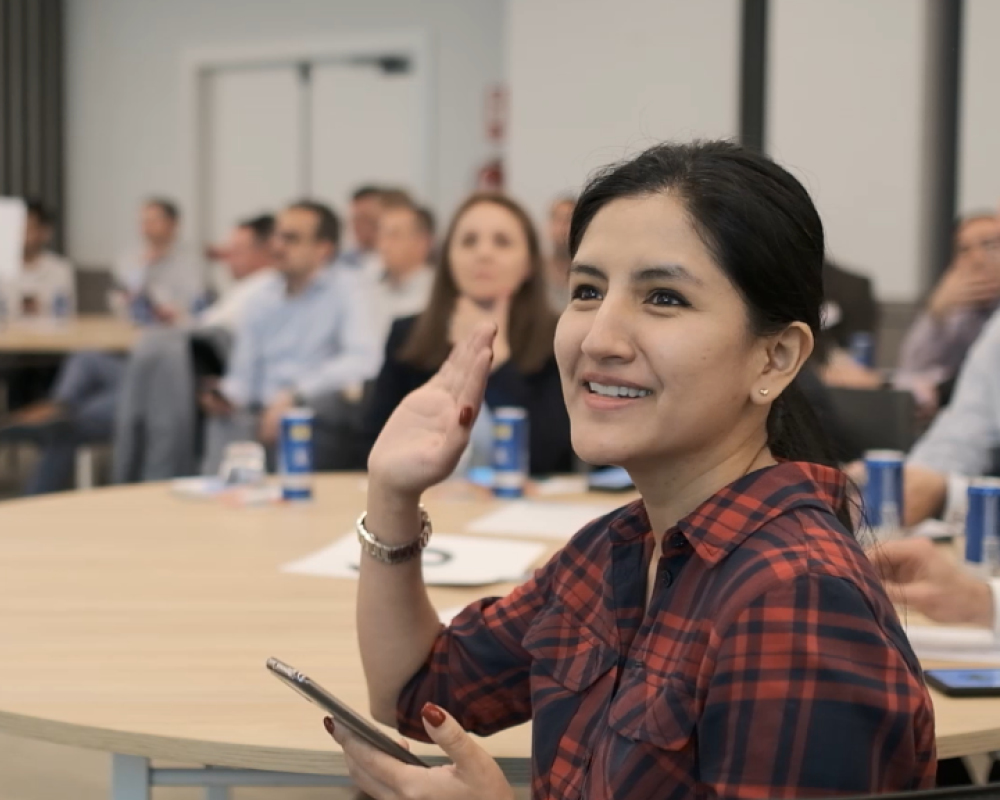
As he points out, a good balance between regional and Group-wide measures as well as intensive communication and collaboration is what shapes our group-level approach. This is why he is in constant exchange with our country HR representatives and their counterparts in our divisions. Since we want to be as close to our people as possible, we manage local HR topics at a local level. This also helps us to take account of national initiatives and social changes. In addition, we seek to use synergies within and across our divisions and business units by developing overarching programs.
One of the current changes in the field of HR is the rapid transformation of the working environment. At SARIA, we are convinced that digitalization is a game changer in this context and we embrace the possibilities associated with it. This is why we renegotiated our social contract for all of our French facilities to include an agreement on enhancing the quality of life at work. Thus, we introduced flexible work organization and teleworking, while at the same providing training for 70 managers to lead their teams remotely. We believe that introducing a flexible work setup is an important organizational measure, but that it can only be effective when people are enabled and trained to work under these new conditions.
A novel digital format has also been created for our HR community in Germany. The “HR Webinar” series introduces new structures, processes and instruments related to HR. Due to its interactive design, the participants from our headquarters and business units can directly provide feedback and ask questions. Focus topics in 2022 included our new competence model, performance reviews and our new recruitment process.
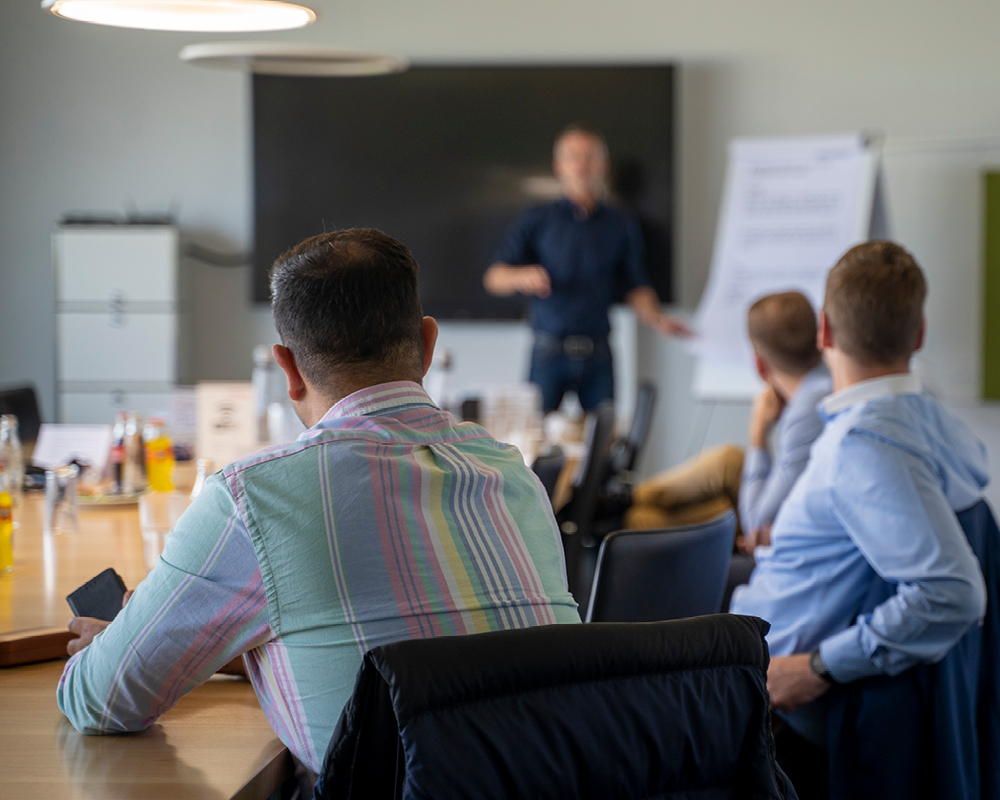
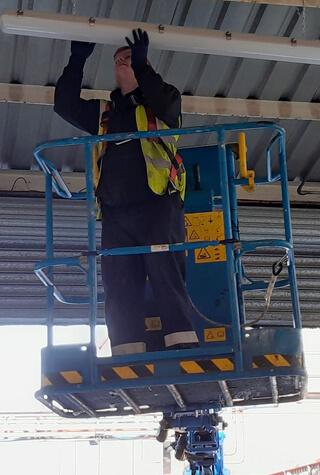
Toby is one of currently 16 apprentices in the UK.
In addition, we build on proven communication and feedback formats to actively collect and incorporate our people’s opinion. For the third year in a row, Daka conducted a barometer survey among all employees in 2022 with a high participation rate of 80,4%. The survey covers topics such as collaboration, participation and management. With a score of 6.2 out of 7, the overall satisfaction was rated as very high. The detailed results are discussed in the individual departments and translated into local action plans and initiatives at company level.
Another important area for country-based initiatives is the promotion of diversity. At SARIA, we are not only acting at a global level, we also believe that diversity in all aspects is an important asset for our organizational culture and our business success.
In Spain, all of our companies developed extensive structures and processes to protect against potential discrimination at all stages of the people management process. In total, over 100 measures were introduced, such as a training program for managers to prevent discrimination during recruitment as well as in day-to-day processes related to promotions, training, or work life balance. The current program focuses on gender discrimination and was developed in consensus with respective unions and workers representatives.
In France, we are supporting the integration of people with disabilities. To create awareness among our employees, we initiated a communications campaign at all of our locations to promote the European Week for the Employment of People with Disabilities, which takes place in November. This event provides a framework for exchanging ideas on how to facilitate the professional integration of disabled people and concrete actions for recruitment.
Another important area for our nationwide HR initiatives is the development and empowerment of our people. Our success would not be possible without their daily commitment, which is why we are committed to their progress and to helping them advance in their careers through continuous personal and professional learning.
An important element in this approach is the development of our apprentices and young professionals. In Germany and France, we cooperate with schools and universities to provide young people with information and the possibility to collect first experiences at work, such as through internships and practical trainings. Furthermore, students and pupils get the chance to gain insights into important and timely topics, such as sustainability, and to increase their environmental awareness.
Once young talents have joined our company, we make every effort to help them to develop and facilitate their leaning experience. In many of the countries where we operate, an apprenticeship at SARIA includes on-the-job learning and the time to attend vocational school or college. Throughout the course, the apprentices are supported and trained by a workplace mentor. This is someone they work closely with, who knows the job, and can help keep them progress. In the UK, Mark Davies, who works as an engineering manager at SARVAL, not only sees great benefits of the program for the young people themselves, but also for the entire company: “Injecting youth into the engineering team is a plus, and if you get the right people who want to learn, it brings a different aspect to the working day of the current engineers. They all enjoy passing on their knowledge.”
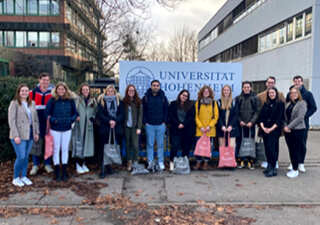
Workshop with students from one of our partner universities in Hohenheim, Germany

Once a year, our “Azubi Convention” takes place where all German apprentices in their first year of training meet for joint workshops and strengthen their network within the organization.
Development for us not only has a professional, but also a personal dimension. This is why we started a program in Germany in 2022 to foster the resilience of our young people. Studies have shown that the changing social environment, in particular during the COVID crisis, is increasingly leading to lower levels of mental well-being and feeling of self-control for young people. Taking a preventive approach, our aim is to provide stability and actively empower our junior employees. For example, we offer fixed office hours during which they can consult with experienced professionals to receive support and advice, as well as individual coaching possibilities and exam preparation courses.
Training and development are certainly not something that we only regard as important for young professionals. We want to give every employee, regardless of profession or age, the possibility to develop. In Spain, we use our “Talk to Grow” program, a combination of annual performance review and discussion on career development. Since 2022, the program is managed through a digital tool that is directly linked to our competency model and bonus system in order to increase transparency and facilitate documentation. The tool is being used in all steps of the process, including self-assessment, assessment by the manager and joint discussion and definition of goals, development opportunities or also mobility options. “Talk to Grow” is mandatory for all levels up to our middle management from 2023 onwards, and we are also considering expanding it to our operational workers. About 175 participants used the tool to conduct reviews of 2022 and development planning for 2023.
Health & Safety
Our health and safety management rests on two pillars. For overall steering and monitoring, we take a centralised approach, supplemented by local documentations. A group-wide safety dashboard with KPIs was introduced in 2020 and is regularly updated, building on divisional reports. Health and safety reports are submitted to the executive board twice a year, including quantitative key performance indicators as well as qualitative information. In 2022, we started to develop a maturity assessment together with our safety community. This aims to complement the current reporting data in order to provide the board with a more detailed picture of the overall level of safety in our Group.
A good example of one of our group policies in the field of safety is our Fire Safety Directive. This common guideline, binding for all entities within our group, was revised and updated in 2022 by our Group Fire Safety Manager in collaboration with the fire safety managers from our divisions and business units. A deviation from it is only possible in cases where local regulations make define different requirements, or the buildings and production facilities do not permit its full implementation. In such cases, however, it must be ensured by the respective entity that an equivalent level of safety is guaranteed.
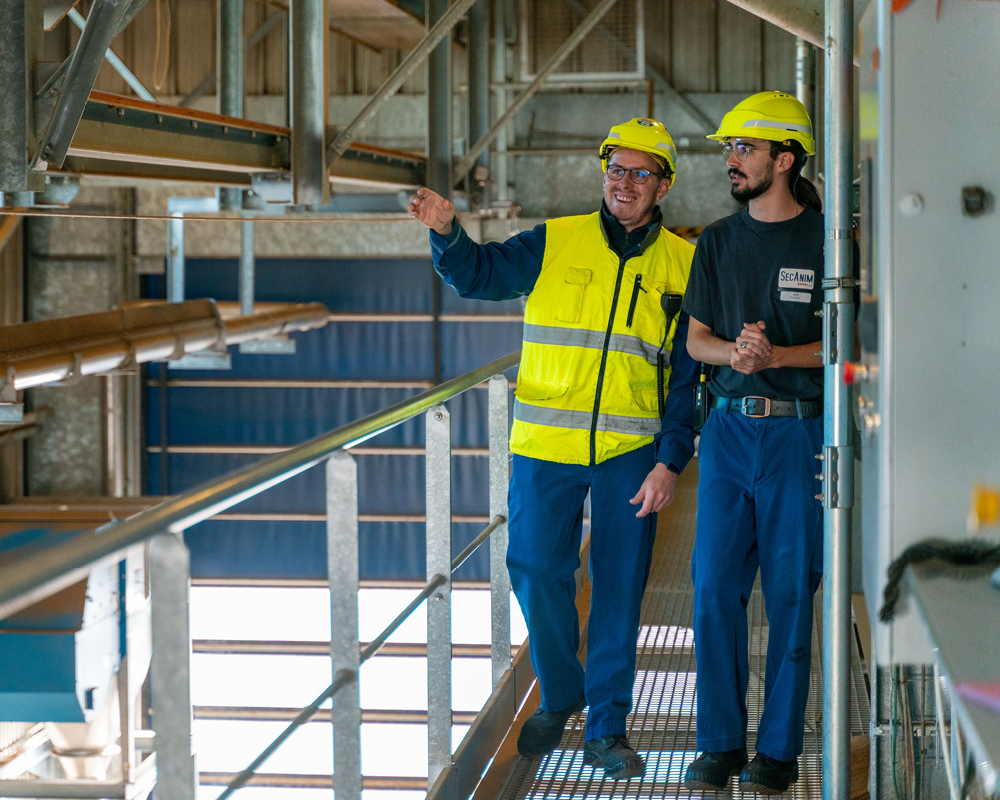
To reach a high level of safety, we regularly conduct audits at our locations. In Spain, for example, we were able to conduct onsite fire safety inspections in cooperation with our insurer in 2022 for the first time after the pandemic, which greatly helps to precisely determine the status quo and to detect potential shortcomings. We are also working on the introduction of a Group-wide audit procedure in order to determine the degree to which fire safety in our entities meets the requirements put forth by our group standard. This will allow us to systematically identify deficits and proactively address them based on a common understanding.
Constituting the second pillar of our overall health and safety management system, we take a decentralised approach when it comes to the development and implementation of most of our programs and activities. This helps us to account for differences in national legal systems and specific requirements of the industries our divisions belong to – again reflecting the interplay of centralised and decentralised elements in our management approach.
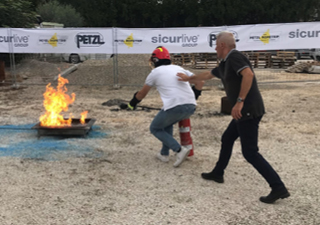
Fire safety training in 2022

